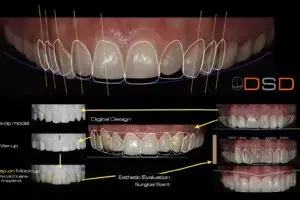Maintaining optimal dental health is a cornerstone of overall well-being. Central to this are the tools you use daily, with toothbrushes playing a pivotal role. Among the myriad options available, electric and manual toothbrushes stand out as the two primary choices. Understanding the differences, benefits, and drawbacks of each can help you make an informed decision that best suits your oral care needs.
Understanding Electric and Manual Toothbrushes
Before diving into the pros and cons, it’s essential to understand what sets electric toothbrushes apart from their manual counterparts.
Electric Toothbrushes
Electric toothbrushes are powered by batteries or electricity and come with various features such as timers, pressure sensors, and different brushing modes. They often have oscillating-rotating or sonic movements that enhance their cleaning efficiency.
Manual Toothbrushes
Manual toothbrushes are the traditional, non-powered option. They rely solely on the user’s brushing technique and motion to clean the teeth. Available in various sizes, shapes, and bristle types, manual toothbrushes are accessible and easy to use.
Benefits of Electric Toothbrushes
Electric toothbrushes offer several advantages that can make a significant difference in your oral health routine.
Superior Plaque Removal
Studies have shown that electric toothbrushes can remove up to 21% more plaque and reduce gingivitis by 11% compared to manual toothbrushes. The consistent and thorough movements of electric brushes ensure that plaque is effectively removed from all tooth surfaces.
Built-in Timers and Pressure Sensors
Many electric toothbrushes come equipped with timers to ensure you brush for the recommended two minutes. Pressure sensors alert you if you’re brushing too hard, preventing potential gum damage and enamel wear.
Ease of Use
Electric toothbrushes are particularly beneficial for individuals with limited dexterity, such as those with arthritis or disabilities. The automated brushing action requires less manual effort, making it easier to maintain a consistent brushing routine.
Example: Jane, a senior with arthritis, found electric toothbrushes easier to handle, leading to improved brushing habits and better oral health.
Enhanced Brushing Techniques
The advanced technology in electric toothbrushes can help users achieve better brushing techniques, ensuring that all areas of the mouth are adequately cleaned. This is especially useful for people who struggle with maintaining proper brushing angles and motions.
Advantages of Manual Toothbrushes
Despite the technological advancements of electric toothbrushes, manual toothbrushes remain a popular and effective choice for many.
Cost-Effective
Manual toothbrushes are significantly more affordable upfront compared to electric models. They are also widely available in various price ranges, making them accessible to everyone.
Variety and Accessibility
There is a vast array of manual toothbrushes available, catering to different preferences and needs. From soft to hard bristles and various head shapes, you can easily find a manual brush that suits your comfort and effectiveness requirements.
No Need for Charging or Batteries
Manual toothbrushes don’t require electricity or batteries, making them a convenient option for travel and everyday use. They are lightweight and easy to carry, ensuring that you can maintain your brushing routine wherever you go.
Effective with Proper Technique
When used correctly, manual toothbrushes are highly effective at removing plaque and maintaining oral health. Proper brushing techniques, such as using gentle circular motions and covering all tooth surfaces, can make manual brushing just as effective as electric brushing.
Fact: According to the American Dental Association (ADA), both electric and manual toothbrushes can effectively clean teeth when used properly.

Drawbacks of Electric Toothbrushes
While electric toothbrushes offer numerous benefits, there are some drawbacks to consider.
Higher Cost
Electric toothbrushes are more expensive than manual ones, both in terms of initial purchase and ongoing costs for replacement heads. This can be a barrier for some individuals.
Maintenance and Charging
Electric toothbrushes require regular charging or battery replacements, adding to the overall cost and maintenance. Additionally, the electronic components may require more care to ensure longevity.
Bulkier Design
Electric toothbrushes tend to be bulkier and less portable than manual brushes. This can make them less convenient for travel or carrying in a bag.
Disadvantages of Manual Toothbrushes
Manual toothbrushes, while effective, come with their own set of limitations.
Technique-Dependent
The effectiveness of manual brushing heavily relies on the user’s technique. Incorrect brushing motions, such as harsh scrubbing or missing areas, can reduce the effectiveness of plaque removal and increase the risk of gum damage.
Lack of Advanced Features
Manual toothbrushes do not offer features like built-in timers or pressure sensors, which can help improve brushing habits and prevent overbrushing.
Which One Should You Choose?
Choosing between an electric and manual toothbrush depends on your individual needs, preferences, and budget. Here are some factors to consider:
Oral Health Needs
If you have specific oral health concerns, such as gum disease or cavities, an electric toothbrush may offer the additional cleaning power and features needed to address these issues effectively.
Budget Considerations
For those on a tight budget, manual toothbrushes provide a cost-effective solution without compromising on basic oral hygiene. However, if you can invest in a higher-end electric model, the added benefits may justify the cost.
Ease of Use and Convenience
Individuals with limited dexterity or those who struggle with maintaining proper brushing techniques may find electric toothbrushes easier to use and more effective in maintaining oral hygiene.
Lifestyle and Portability
If you lead a busy lifestyle or travel frequently, a manual toothbrush’s portability and ease of use might make it the more practical choice.
Conclusion
Both electric and manual toothbrushes can effectively maintain your oral health when used correctly. Electric toothbrushes offer advanced features and superior plaque removal, making them ideal for individuals seeking enhanced oral care. On the other hand, manual toothbrushes are affordable, accessible, and highly effective with proper technique, catering to a wide range of users.


